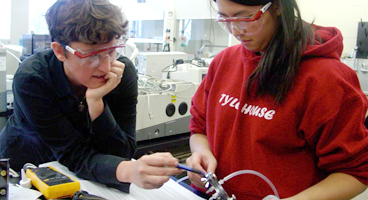Document Type
Article
Publication Date
8-4-2020
Publication Title
Environmental Science and Technology
Abstract
Waterborne viruses are responsible for numerous diseases and are abundant in aquatic systems. Understanding the fate of viruses in natural systems has important implications for human health. This research quantifies the uptake of the bacteriophage T4 and the enteric virus echovirus 11 when exposed to the filter feeders Tetrahymena pyriformis and Daphnia magna, and also examines the potential of viral transfer due to trophic interactions. Experiments co-incubating each species with the viruses over 72-96 h showed up to a 4 log virus removal for T. pyriformis, while direct viral uptake by D. magna was not observed. However, viral uptake by D. magna occurred indirectly by viral transfer from prey to predator, through D. magna feeding on virus-loaded T. pyriformis. This prey-predator interaction resulted in a 1 log additional virus removal compared to removal by T. pyriformis alone. Incomplete viral inactivation by D. magna was observed through recovery of infective viruses from the daphnid tissue. This research furthers our understanding of the impacts of zooplankton filter feeding on viral inactivation and shows the potential for viral transfer through the food chain. The viral-zooplankton interactions observed in these studies indicate that zooplankton may improve water quality through viral uptake or may serve as vectors for infection by accumulating viruses.
Volume
54
Issue
15
First Page
9418
Last Page
9426
DOI
10.1021/acs.est.0c02545
ISSN
0013936X
Version
Version of Record
Recommended Citation
Ismail, Niveen S.; Olive, Margot; Fernandez-Cassi, Xavier; Bachmann, Virginie; and Kohn, Tamar, "Viral Transfer and Inactivation through Zooplankton Trophic Interactions" (2020). Engineering: Faculty Publications, Smith College, Northampton, MA.
https://scholarworks.smith.edu/egr_facpubs/108


